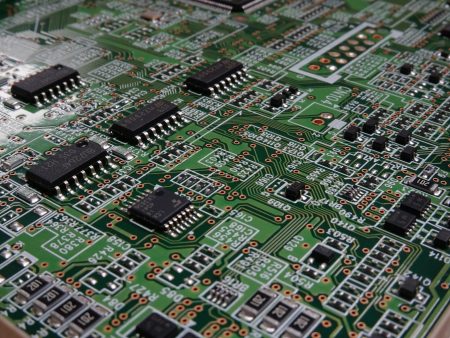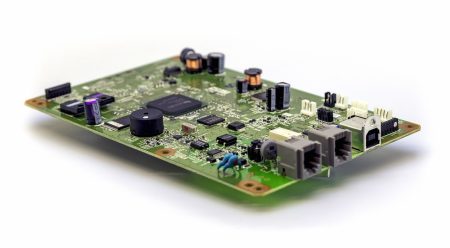- +86-755-23012705
- Building 3, Jinfeng Industrial Park, Fuyong Street, Baoan District, Shenzhen ,China
- [email protected]
As electric vehicles (EVs) gain popularity and become a central part of the automotive landscape, the technology that underpins them is also evolving. One of the critical components in this evolution is the Printed Circuit Board (PCB). PCBs play a vital role in the functionality of electric vehicles, facilitating connections and communication between various electronic components. Understanding the key characteristics of PCBs used in electric vehicles is essential for anyone interested in this rapidly advancing field.
One of the most significant characteristics of PCBs in electric vehicles is their ability to handle high power density. Electric vehicles rely on robust power electronics to manage battery power and drive electric motors efficiently. This requires PCBs that can support high currents and voltages without overheating. To meet these demands, manufacturers often utilize thick copper layers and advanced materials that can dissipate heat effectively. These enhancements allow the PCB to function reliably under the substantial power loads typical in EV applications.

Given the high power density, effective thermal management is crucial for the reliability and longevity of PCBs in electric vehicles. EV components, especially batteries and inverters, generate considerable heat during operation. Therefore, PCBs are often designed with heat dissipation features, such as thermal vias and heat sinks, to help regulate temperatures. Materials with high thermal conductivity, like aluminum or specific ceramic composites, are also frequently used to enhance heat dissipation. Proper thermal management not only improves performance but also prevents potential failures that can arise from overheating.
Reliability is paramount in any automotive application, but it is especially critical for electric vehicles, where system failures can have serious safety implications. The PCBs used in EVs must withstand harsh operating conditions, including extreme temperatures, vibrations, and humidity. To ensure reliability, manufacturers adhere to stringent quality standards and utilize advanced manufacturing processes, including thorough testing and inspection protocols. Additionally, the use of conformal coatings can provide added protection against moisture and contaminants, further enhancing the longevity of the PCB.
Electric vehicles are subject to various vibrations and shocks from the road, which can adversely affect electronic components. Therefore, PCBs must be designed to resist these mechanical stresses. This often involves using flexible PCBs or implementing specific mounting techniques that can absorb shock. The components mounted on the PCB are also chosen for their durability and ability to withstand vibrations, ensuring that the overall assembly remains intact even under challenging driving conditions.

The complexity of modern electric vehicles requires intricate PCB designs. An EV may have multiple PCBs controlling different systems, such as battery management systems (BMS), power distribution units, and infotainment systems. This necessitates advanced circuit design capabilities, including multi-layer boards that can accommodate dense circuitry and complex signal routing. Engineers must also pay close attention to signal integrity and electromagnetic compatibility (EMC) to prevent interference between components, ensuring smooth operation.
Reducing weight is a critical consideration in electric vehicle design, as a lighter vehicle can achieve greater efficiency and longer range. Consequently, PCBs used in EVs are often constructed from lightweight materials while still meeting performance requirements. This can involve using thinner substrates, minimizing copper weight, and employing innovative manufacturing techniques. By optimizing the design and materials, manufacturers can produce PCBs that contribute to the overall weight reduction of the vehicle.
Electric vehicles often operate in various environmental conditions, which can expose them to water, dust, and other contaminants. Therefore, PCBs used in EVs frequently incorporate waterproof and dustproof features to enhance their durability. This is typically achieved through conformal coatings, potting compounds, or encapsulation techniques that provide a barrier against environmental factors. Ensuring that PCBs are protected from moisture and debris is crucial for maintaining performance and preventing failures.

With the rise of advanced communication systems in electric vehicles, such as vehicle-to-everything (V2X) communication and advanced driver-assistance systems (ADAS), PCBs must support high-frequency signals. This requires careful design considerations to minimize signal loss and ensure effective transmission. Techniques such as controlled impedance routing and the use of high-frequency materials are essential in achieving optimal performance in these applications.
The key characteristics of PCBs used in electric vehicles highlight their critical role in the performance, reliability, and safety of these advanced machines. As the demand for electric vehicles continues to grow, so too will the innovations in PCB technology. Manufacturers must remain vigilant in adapting to new challenges and integrating advanced features that meet the evolving needs of the automotive industry. By focusing on high power density, thermal management, reliability, and other essential characteristics, the future of electric vehicle technology looks promising, paving the way for a more sustainable and efficient automotive landscape.
Your Trusted Partner for PCB Success: XPCB Limited
Let XPCB Limited be your guide to PCB success. Our comprehensive PCB manufacturing, rapid prototyping, and turnkey PCBA services are designed to meet your needs with ease. Count on us to deliver reliable solutions that exceed your expectations. With XPCB Limited, your journey to PCB excellence starts here.






XPCB Limited is a premium PCB & PCBA manufacturer based in China.
We specialize in multilayer flexible circuits, rigid-flex PCB, HDI PCB, and Rogers PCB.
Quick-turn PCB prototyping is our specialty. Demanding project is our advantage.
Tel : +86-136-3163-3671
Fax : +86-755-2301 2705
Email : [email protected]
© 2024 - XPCB Limited All Right Reserve
